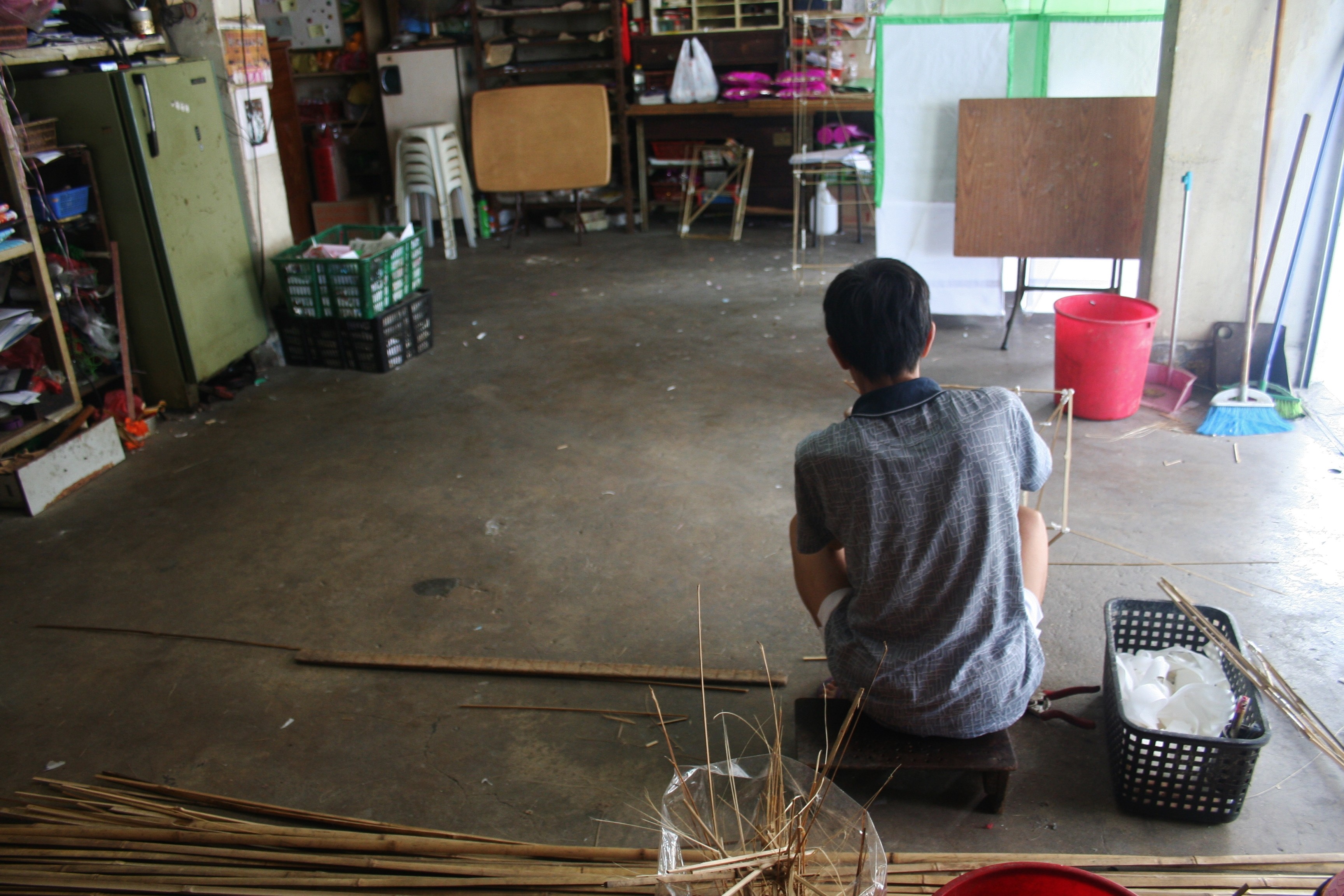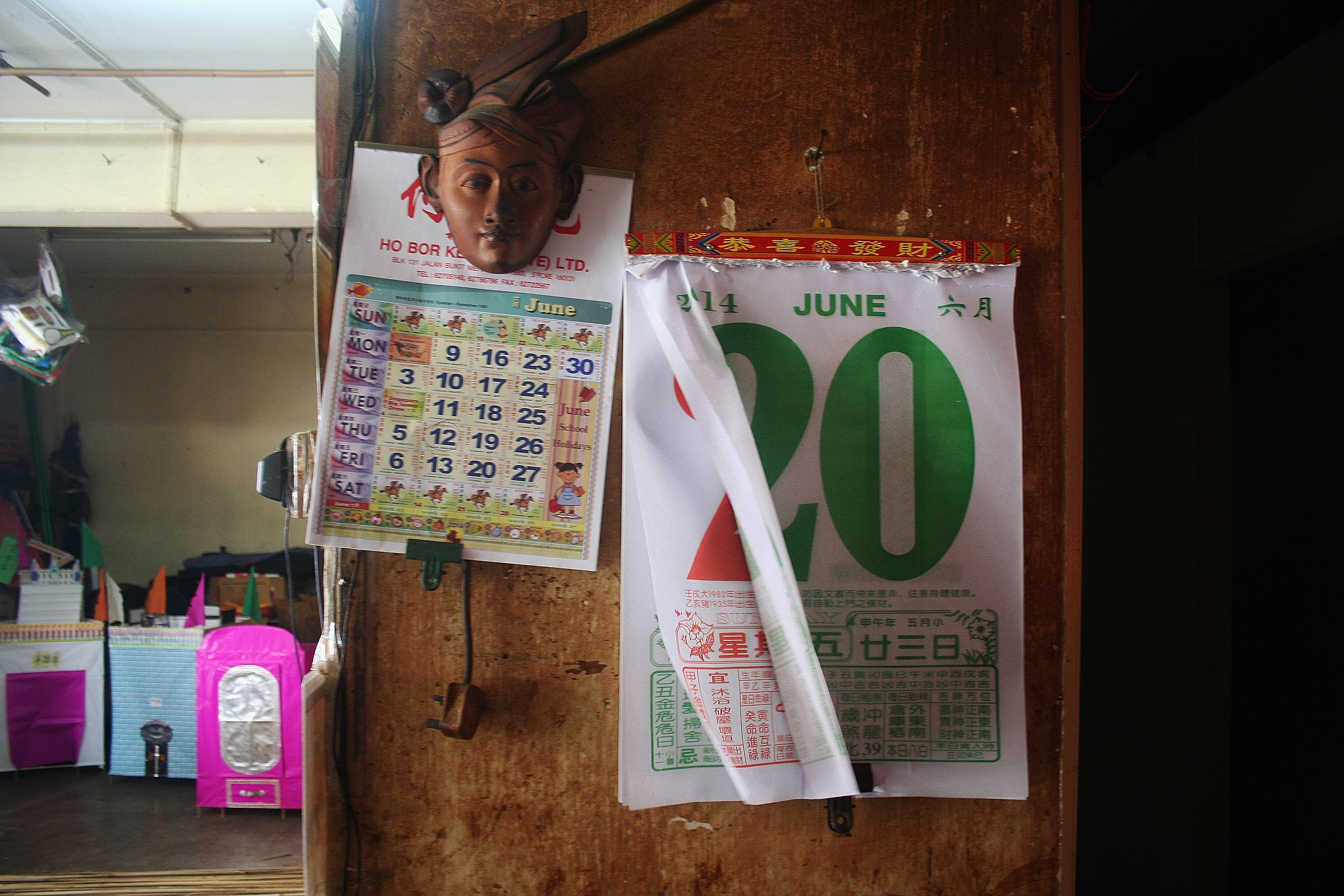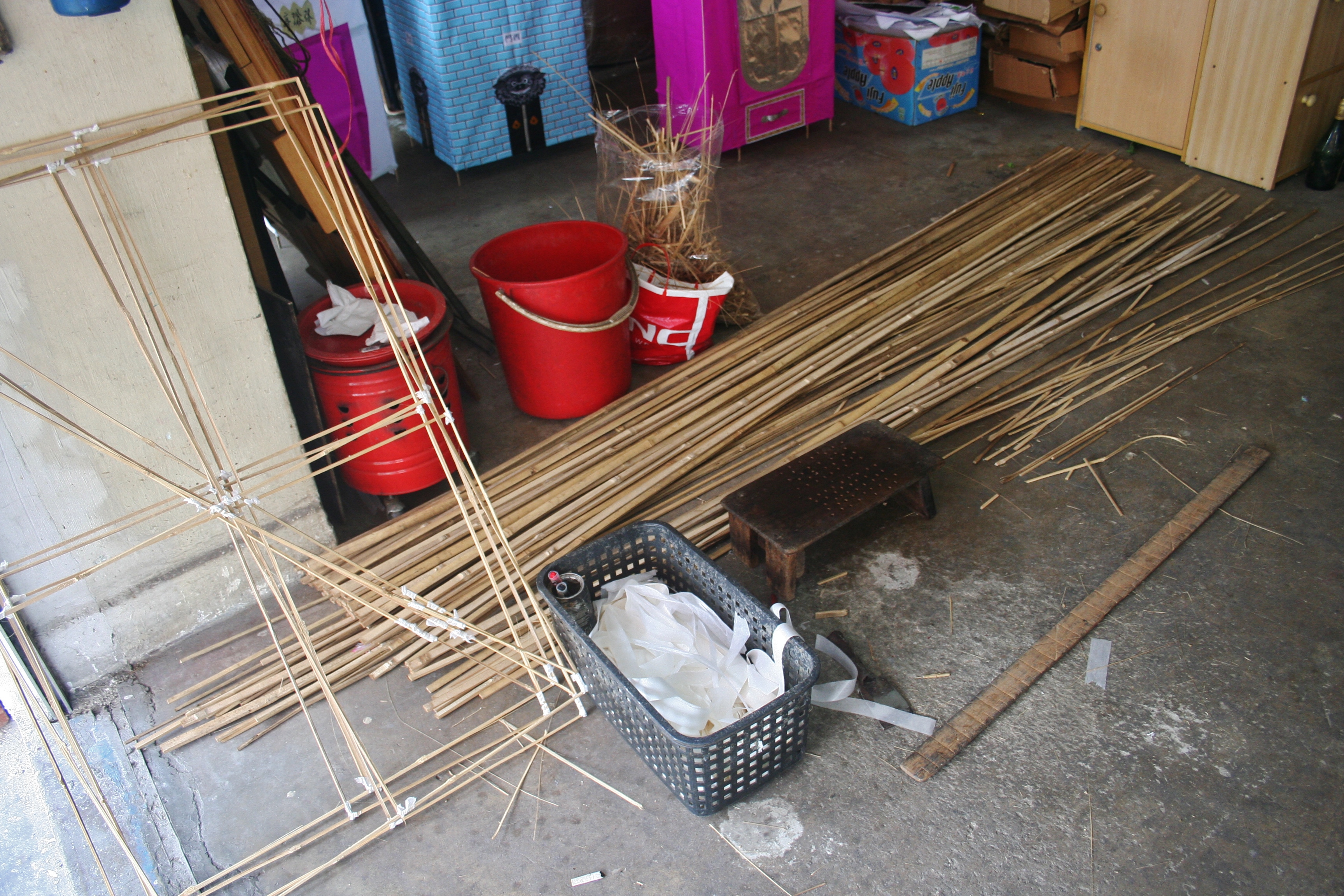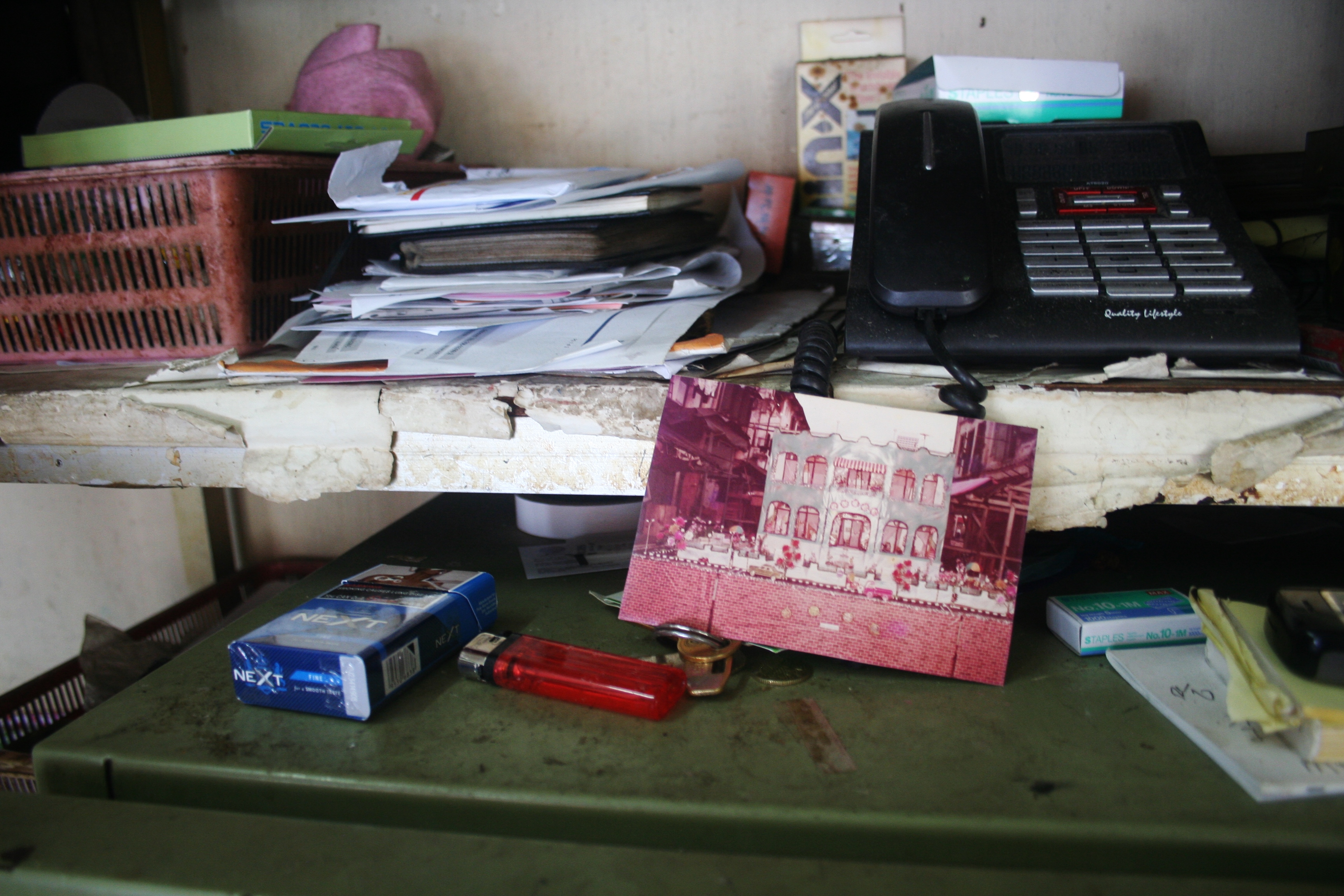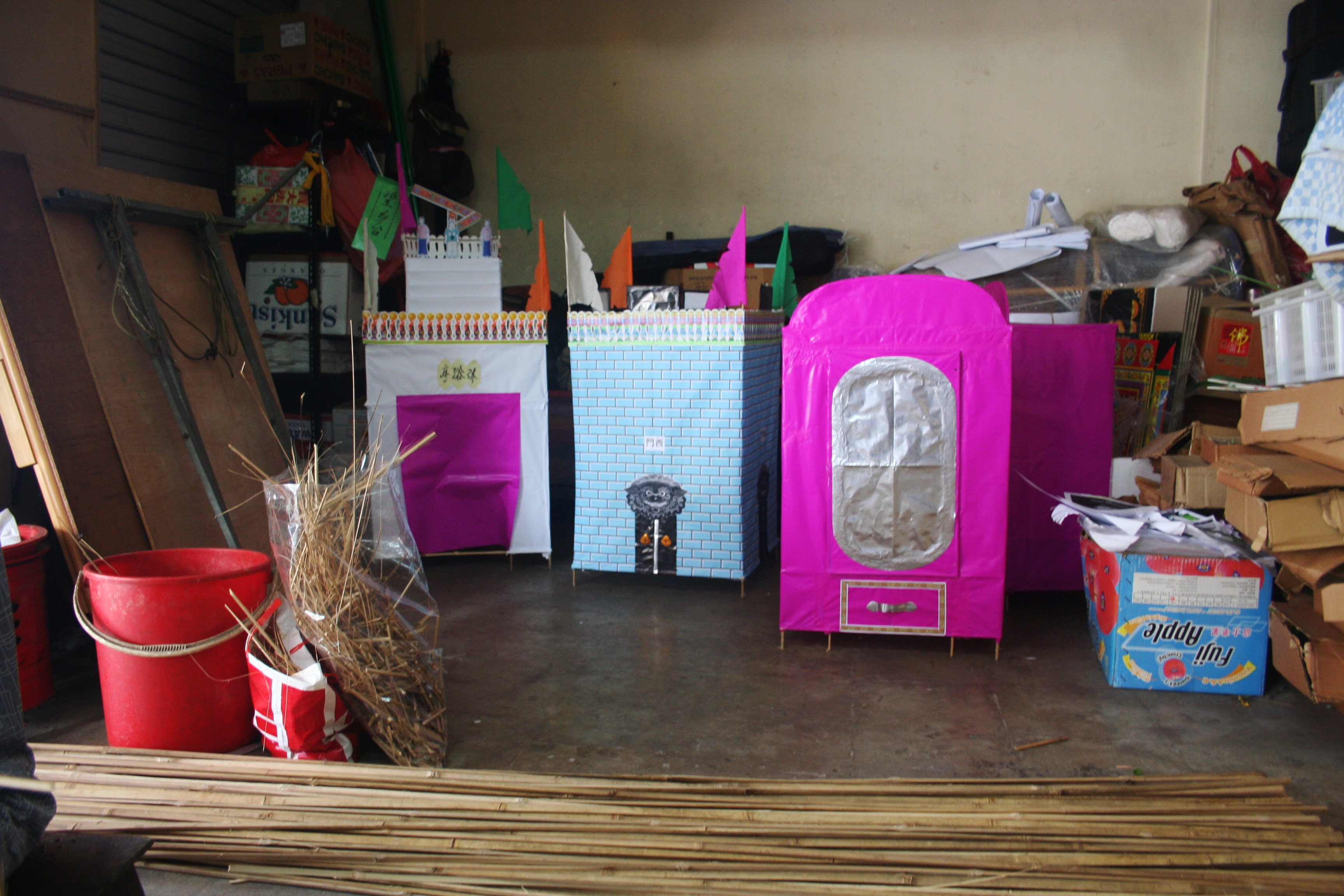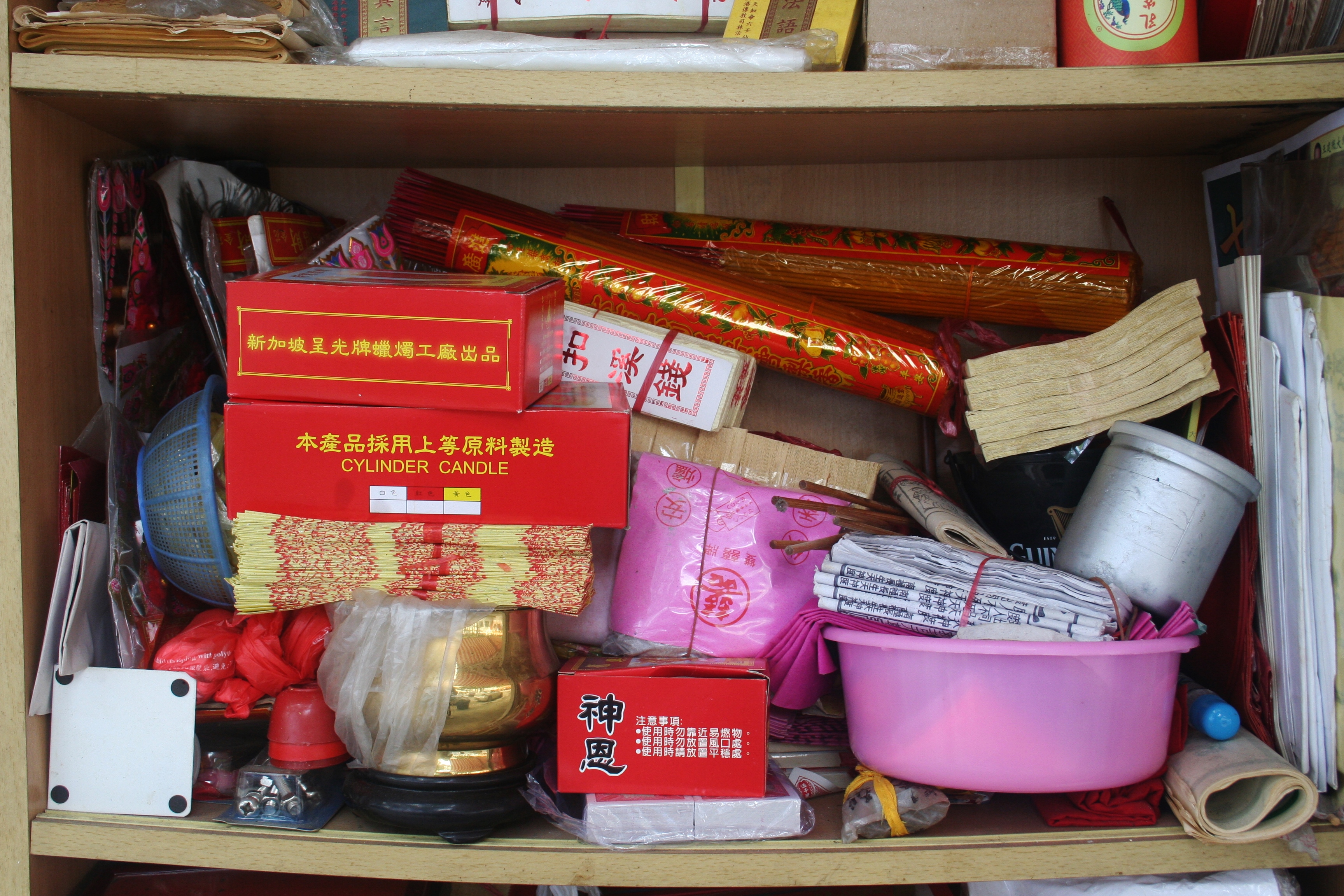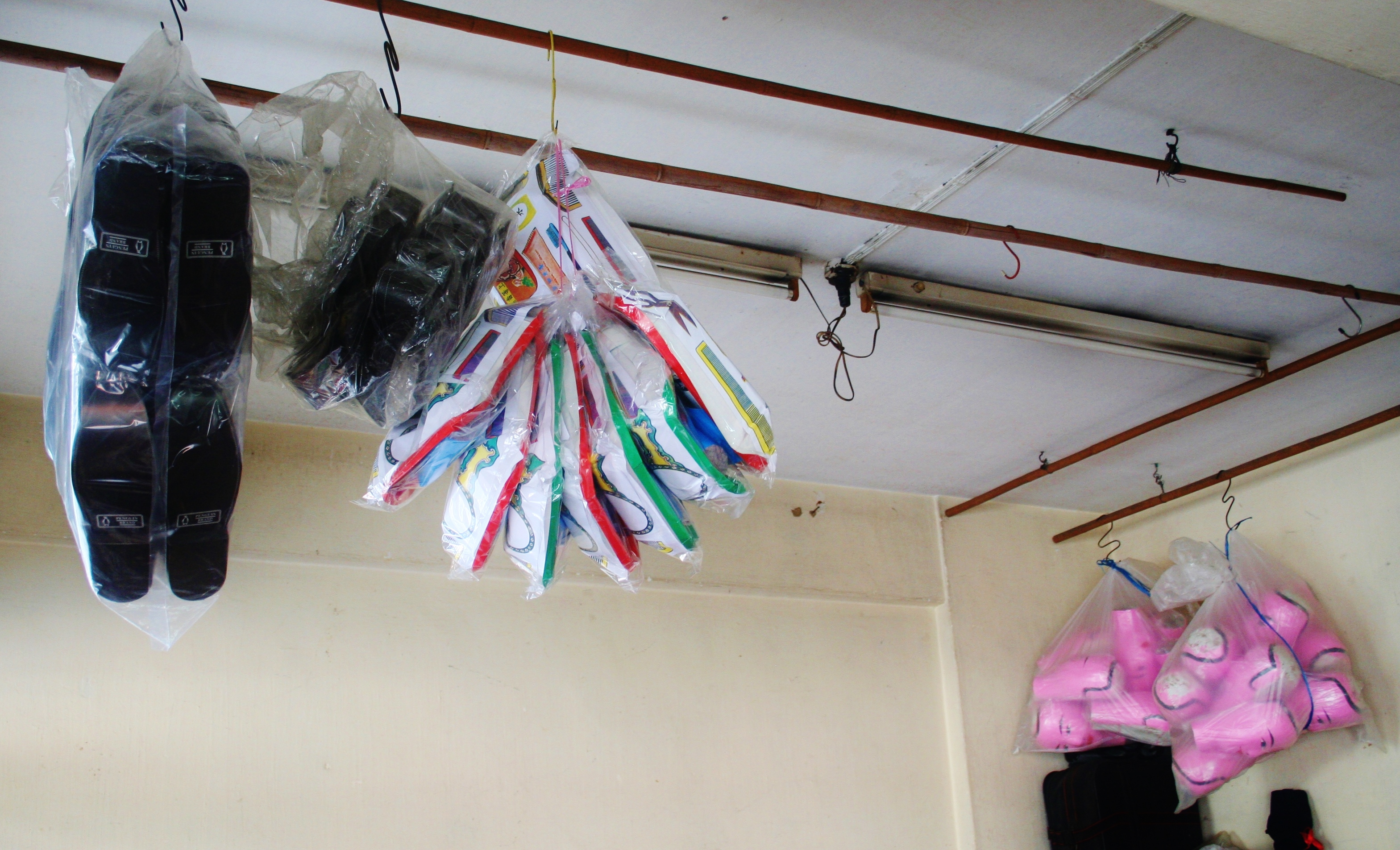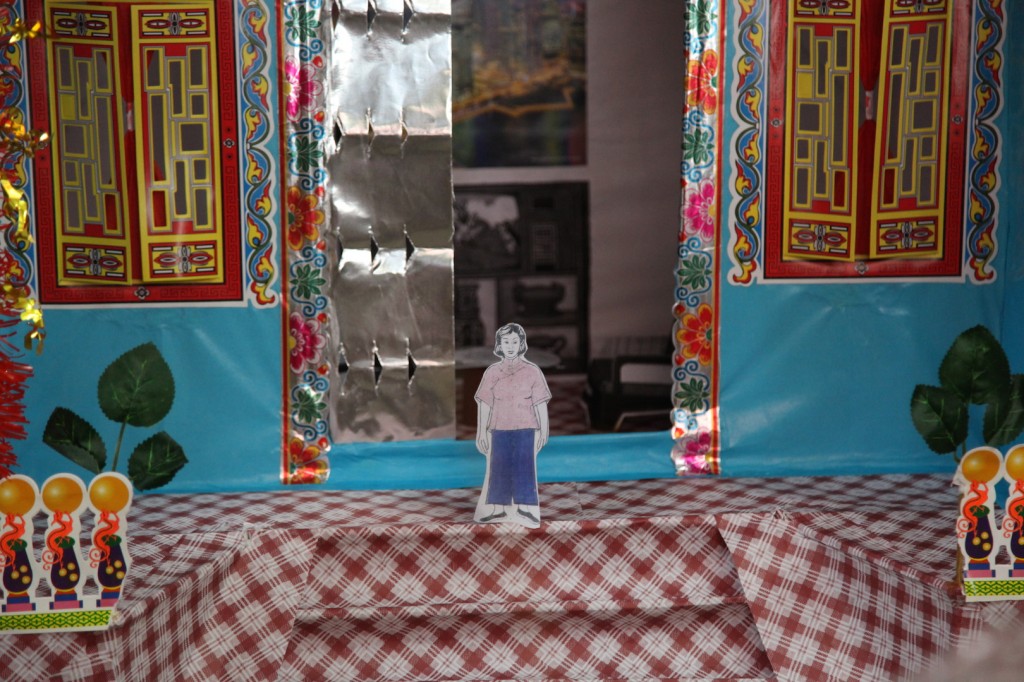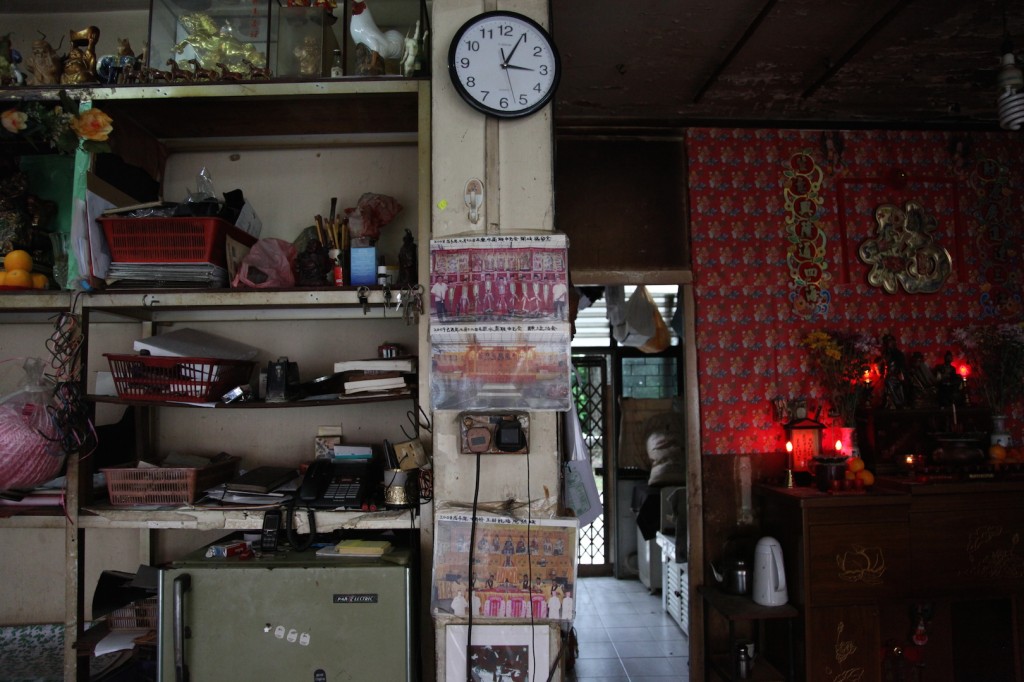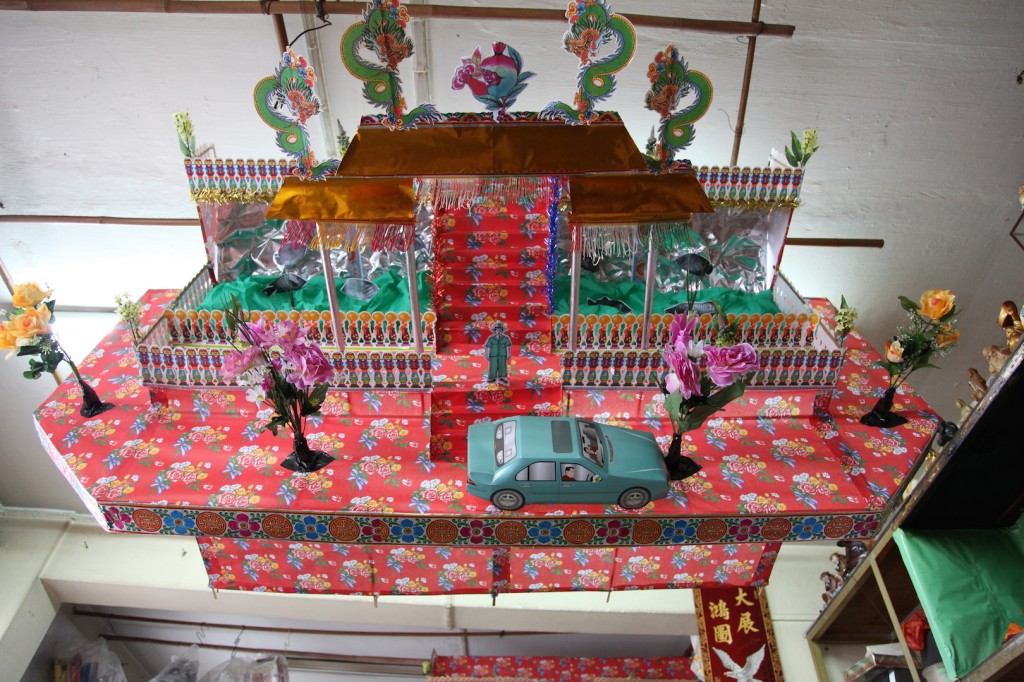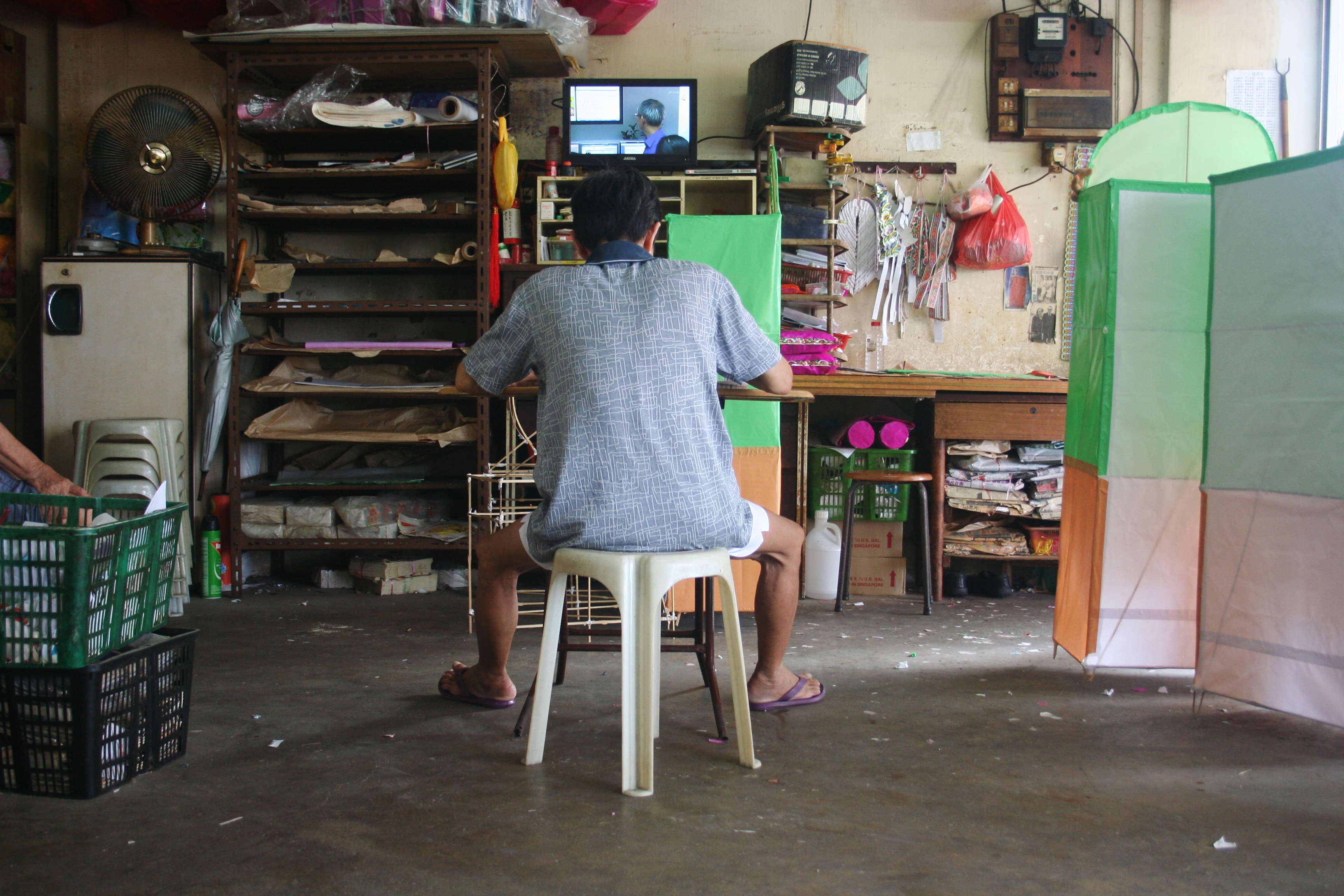Fifty metres up a steep road behind Outram Secondary School sits a row of uniformed white government blocks along the two-lane street of Jalan Minyak, deadly resembling scenes of Nat Geo’s Life After Humans.
Up until recent times, it has been known as one of Singapore’s poorest neighbourhoods infamous for wayward youth distracted by gangsterism and substance abuse.
“Policemen do still patrol the area, but so far, it’s not as complicated as it’s made out to be,” says Mr Li Yao An.
In a little over a month’s time, Mr Li’s shop – packed with waxed papers, patterned stickers, vanguard sheets, scissors, glue, strips of wood and all things arts and craft befitting a primary school art room – will be swamped by customers following up on a deluge of advance orders he has received over the past months, mostly from temple priests.
There, people will come in for the latest MacBook, iPhone (the iPhone 6 design was not leaked to Mr Li), mint-conditioned dollar bills, cigarettes, European cars like the Mercedes E-class and Bentley, ships, planes and of course, new homes such as maisonettes, bungalows and HDB flats like the one Yew Chye Religious Goods Trading resides in.
All made of paper, of course, to be burnt by relatives to honour the passing of their loved ones for the upcoming Hungry Ghost Month. We ask him for the iPhone.
“Why you want iPhone? Not valuable,” he says, laughing.
A life-sized servant doll would cost you roughly $150 while a three-story maisonette would cost you $500, around the same price for a motorcycle that can’t run. Each construction would take roughly a week’s worth of bending, scraping, gluing, cutting and slicing. But if you’re like Mr Li who has decades of experience, making 10 a week is easy peasy. The most expensive piece of work fetched $8,000, Mr Li says.
Mr Li owns Yew Chye Religious Goods Trading, an old trade that makes paper offerings for the dead, offerings sold mainly to Buddhists and Taoists during high-demand periods like the Hungry Ghost Month and Qing Ming (the annual tomb sweeping of graves).
These ordinary material replicas of everyday items are intended to keep spirits happy. The burning of offerings is a symbolic act of respect and filial piety to one’s ancestors. It is believed that by burning them, it teleports the items from the human world to the spirit realm.
“I told her that my business involved ships, cars and houses. Clearly impressed, she commended saying that my business must be really big. I then told her the truth and we both ended up laughing.” Mr Li Yao An joking about a conversation he had with a woman while on holiday
In all his dealings with the afterlife, the 63-year-old Mr Li isn’t spooked. He’s been in the trade of crafting offerings for the dead for over 30 years.
“Once I had to close the shop late past midnight, so I slept over. But at 4am, I was disturbed by sounds of playful mutterings and footsteps coming from the main area of the shop.
“I scolded them and told them to go away, and then they left,” he says as a matter of fact, because supernatural occurrences aren’t new to Mr Li.
Having left school at 12, he helped out at his mother’s drink stall before moving on to get a job at a metal factory. That didn’t last long because his boss didn’t take a liking to him. Undaunted, he went on to work in Chinatown where he learnt the skill of making paper offerings for two years as an apprentice.
He claims to have bought three units at Jalan Minyak in 1993, and had to owe suppliers money while trying to kick-start his paper offering business, he claims. It wasn’t an easy start for him, but he says life has become smoother.
His mother, a woman who used to make a living by tending to a small drink stall, could only watch her son as he stubbornly went ahead with his $100 to carve a living with his two hands and an iron-will.
Mr Li joked that once, while on vacation, a woman asked what his business was.
“I told her that my business involved ships, cars and houses. Clearly impressed, she commended saying that my business must be really big. I then told her the truth and we both ended up laughing.”
“I believe that spirits exist, but there’s nothing to be afraid. Because I also believe in God.”Mr Li
With hands that worked nimbly slicing the wooden poles into thinner strips, he says: “It’s not easy to sit on this stool for six to eight hours. It’s a back-breaking job but I’m used to it. I managed to give my family a comfortable life.”
Humble, accommodating and polite, he continued working on a structure for a hell-wedding and adds: “Happiness is important.”
An easy-going man who kept reiterating that a positive attitude was the most important thing in life, he asks upon our very first meeting: “Why do you bother writing about this? This is a dying trade.”
Yet, this granddad of two delights and prides himself on having an invaluable skill.
“Yew Chye Religious Goods Trading will go down with me,” he adds.
Yielding to his old age, he says: “If an illiterate person comes up to me wanting to learn my skill. I would be more than willing to teach. But if a literate person asks that of me, I would tell him that he’s better off at school.”
As life catches up with him, he seems to be putting his business to rest and letting it die after decades of helping spirits get what they need, and 30 years of making a living for the dead will go with him.
Balestier’s Tin Man: ‘I’ll keep this business alive till the day my body gives up’
